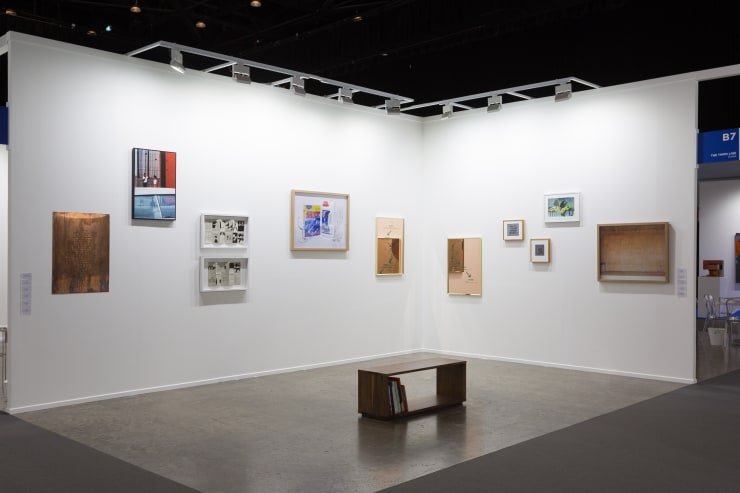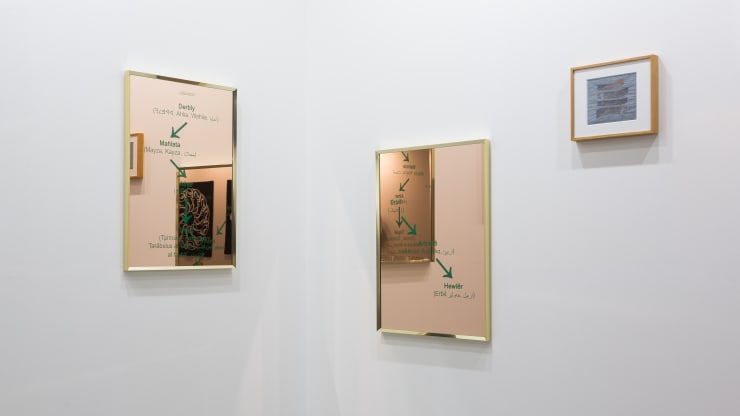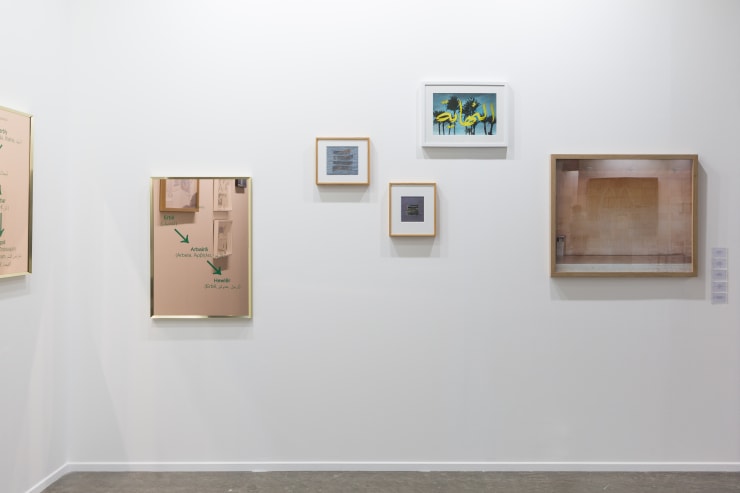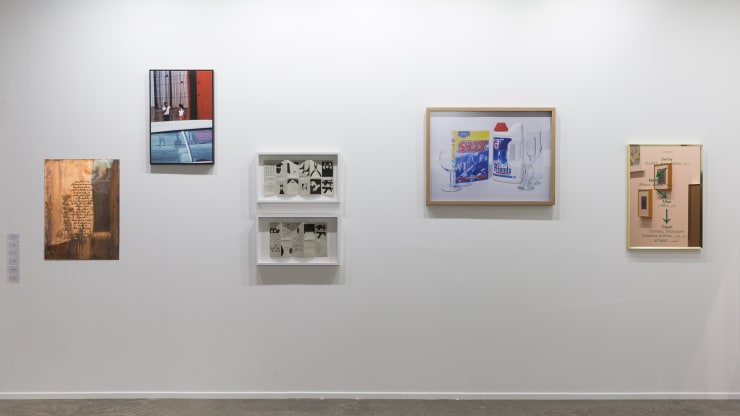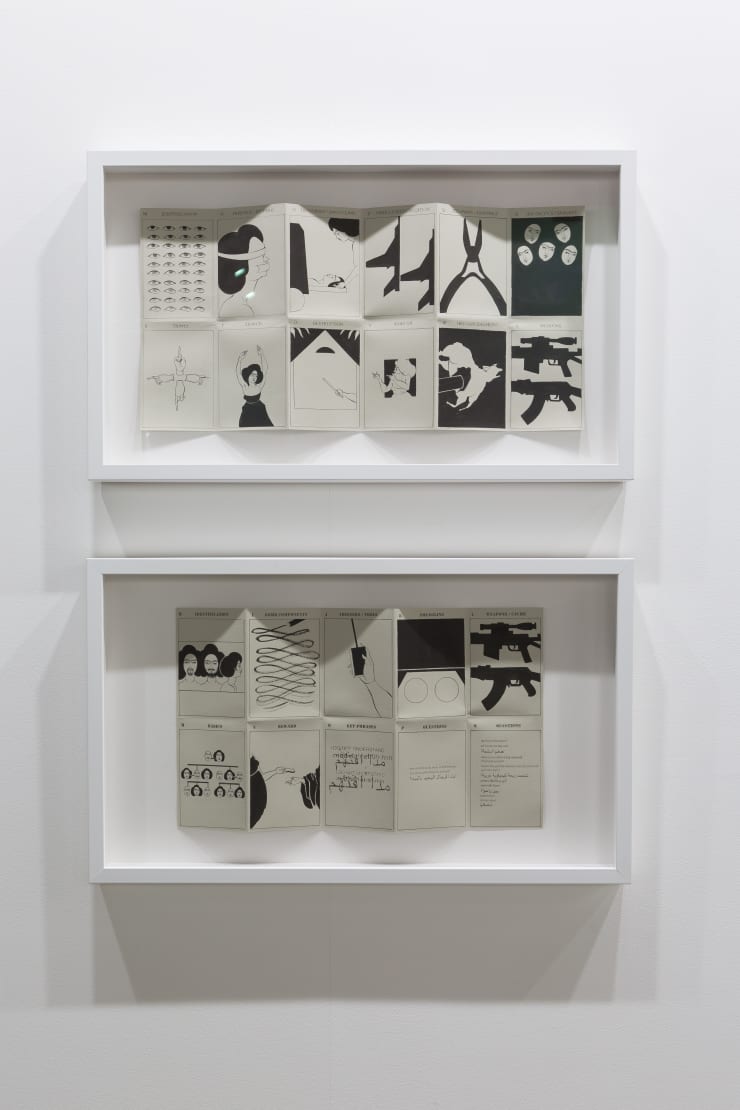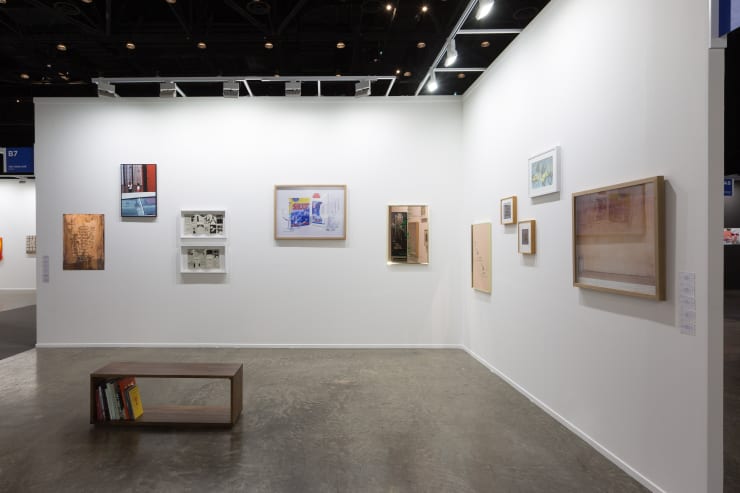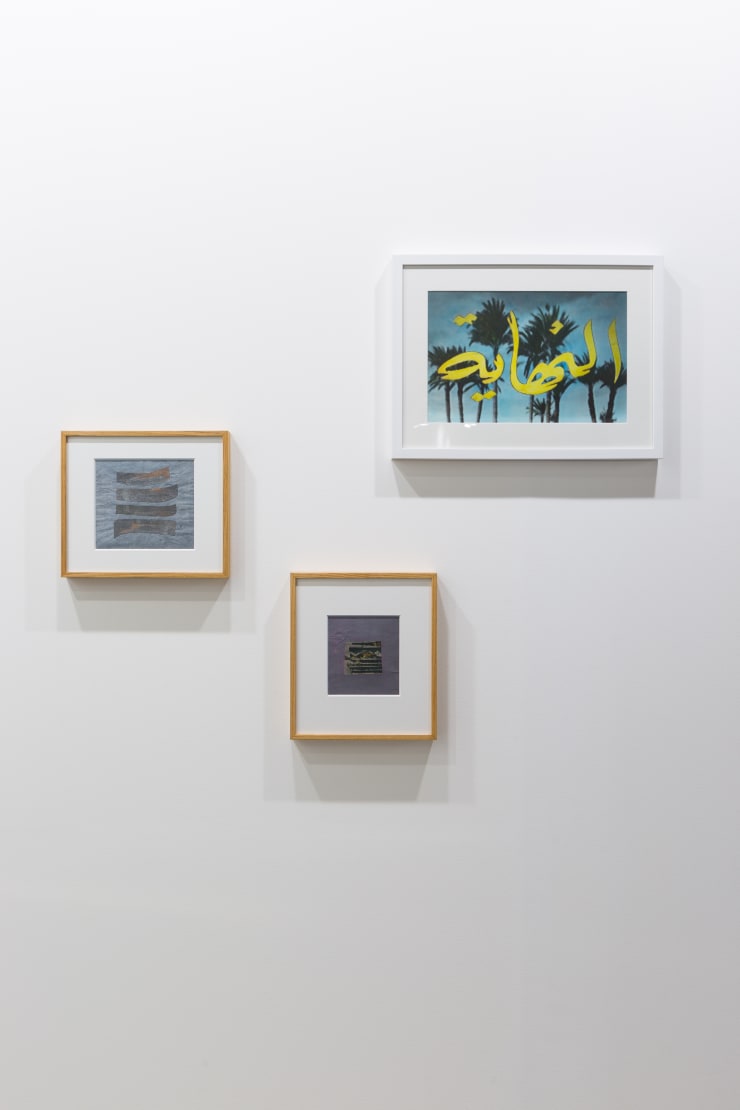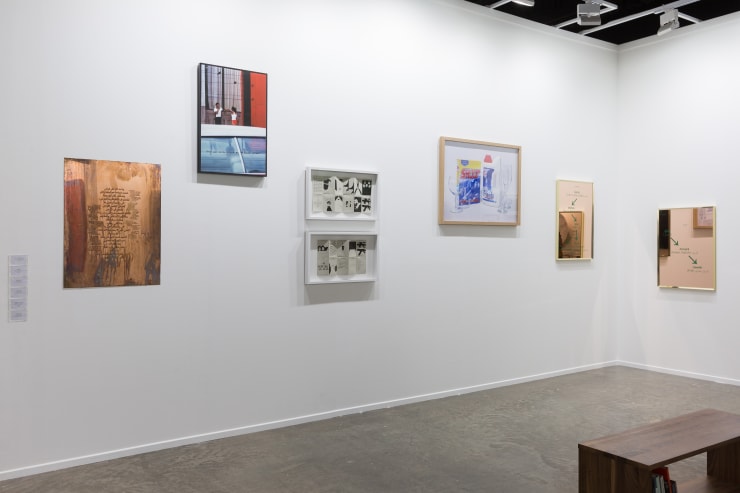The Third Line is pleased to announce its participation in the 13th edition of Art Dubai with a group presentation that illustrates the visual power of language in its varied manipulations through works by Fouad Elkoury, Farah Al Qasimi, Farhad Moshiri & Shirin Aliabadi, Huda Lutfi, Hayv Kahraman, Slavs and Tatars, Youssef Nabil and Zineb Sedira.
The selection of artists used the written word, some literally, others less so, some with irony, others with bluntness, to address the social, political and/or cultural matters that guide their practices.
The work of Fouad Elkoury references the social theories of author and filmmaker Paul Virilio, who explores the relationship between image and war technology. Fouad layers text on photographic montages mounted on aluminum, in a poetic and personal exploration of national aspirations and the dream of the individual.
Farah Al Qasimi’s art practice is based around photographing the unusual, and the often overlooked, places where she finds herself positioned. In her series The World is Sinking, Farah takes an introspective look at the Emirates, where she grew up. Evidencing the rapid change of local landscape in the name of growth and development, Farah’s photographs demonstrate how rushed attempts often end up in near comical results.
Operation Supermarket is one of Farhad Moshiri and Shirin Aliabadi’s collaborative series, in which labels of known supermarket commodities have been replaced with ironic phrases. In the words of the artists, the works mix "poetry with detergent.”
Huda Lutfi uses her signature paper cut out technique to create minimalist and calligraphic abstractions which she calls ‘paper sculptures’. Reminiscent of muted script, where only the outline remains, the mere idea of words seems louder than the written one.
Hayv Kahraman’s Smart Card belongs to a body of work that narrates the violence of sound and the sonic trauma connected to her past—and that of many others—as an Iraqi immigrant. Originally used during the Iraq war, the cheat-sheet provided visually aided tools to military personnel for dealing quickly with situations most commonly expected to arise, as well as a communication tool between them and non-English speaking Iraqis.
Slavs and Tatars ground themselves in a particular dialectical and geographic terrain, specifically the vast swathe east of the former Berlin Wall and west of the Great Wall of China. Their series Love Me, Love Me Not considers these waves of power as they play out in the constantly changing names of 150 cities within their Eurasian remit. Like the eponymous game of unrequited love, each work plucks off the former names imposed on a city by its former colonisers to create a thorny record of an often brutal history.
Youssef Nabil’s work was first shown in an exhibition entitled I Will Go to Paradise, which encapsulated loose references to selected moments from the artist’s life. Cinematic in its compositions and allusions to narrative, the work displays Youssef’s signature re-appropriation of the hand colouring technique of black and white photographs.
Iterations of works presented in her 2018 solo exhibition at the Sharjah Art Foundation, Zineb Sedira’s copper plate sheets are engraved with jokes gathered from the artist’s personal archives of publications illustrating the tumultuous period of 1990s Algeria. Part of her Laughter in Hell series, they present dark humor as a form of resistance to tragic times.
